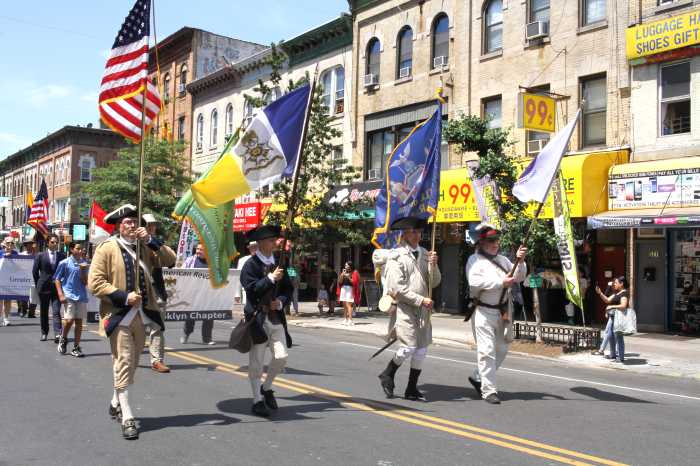It was nearly 10 years ago that our lives were forever changed when two fuel-laden passenger jets, hijacked by terrorists, hurtled into the World Trade Center. Nearly 3,000 people died on Sept. 11,2001, including 2,752 in the attack on the Twin Towers, among them 343 firefighters and 60 police officers. The coordinated attack on the Pentagon caused 184 deaths, and 40 more died when a fourth hijacked plane crashed down in Pennsylvania short of its target, thanks to passengers’ valiant efforts.
That day of infamy was a decade ago, but the horrific scene of the burning and collapsing towers is seared onto our collective memory, and will never be forgotten. Many of us had friends and family who died in the 9/11 attacks — and time will never heal those wounds.
For those of us that live and work Downtown, we well remember the very unsteady weeks and years following the attacks. Our schools were closed, and then reopened. Our local businesses suffered immensely, and many closed their doors. Entire neighborhoods were in the frozen zone, and we suffered immense environmental contamination. We lived through weeks, months, and then years of a walled off W.T.C. It took forever for Fiterman Hall and Deutsche Bank to be finally demolished, with the attendant tragedy at Deutsche. This was the second time that Lower Manhattan was in the terrorist crosshairs.
The daring midnight mission by U.S. Navy SEAL’s in which bin Laden was killed was a stunning blow in the war on terror. With Al Qaeda’s leader taken out, there is now a feeling of relief that we are safer, that the evil terror apparatus has been dealt a key blow. Psychologically, also, it was vitally important that bin Laden be captured or killed. That it was done by the U.S. sends a message to the world that we are strong, resolute and will stop at nothing to track down terrorists that attack us.
Bin Laden’s killing was also a huge coup for President Obama. He personally authorized the risky mission — choosing it over the safer option of bombing the terror leader’s compound, since that wouldn’t prove conclusively that bin Laden had been killed. Obama comes out looking decisive, a strong and levelheaded leader dealing with the critically important, life-and-death issue of terrorism, while the Republicans who have been lambasting him over things like his birth certificate now look like childish lightweights. To their credit, though, many Republicans are now praising the president for being the man who finally got bin Laden.
Not only is the timing beneficial for Obama, improving his chances for re-election, but it also comes at a key moment for the Middle East, which is going through tremendous changes. The recent Arab Spring, with its “Facebook Revolution,” has seen popular uprisings against despotic regimes in Egypt, Tunisia, Libya, Syria, Yemen, and Bahrain. The region is still in turmoil and flux, but it seems that democracy now finally has a chance to take hold, and that the ways of Al Qaeda — jihad as terrorism and hatred — are losing influence. Generations of young Arabs are crying out for freedom and a better future, not for a return to a 7th Century Caliphate. At least, that is the hope.
No doubt, Al Qaeda now wants to strike back. It will take the ongoing best efforts of our combined federal and local antiterrorism agencies, police and the military to keep those that would do us harm at bay. We must still be vigilant.
Obama will be coming to Ground Zero on Thursday to bring some measure of closure and also reap the political capital to be expected from successfully getting the world’s No. 1 terrorist. In four months, the National September 11 Memorial will finally open — 10 years after 9/11. Again, the timing seems right.
Everyone always recalls the brilliant blue skies on Sept. 11, 2001, but that tragic day left a terrible, dark cloud in our hearts. With bin Laden finally brought to justice, that cloud has lifted more than a bit.





































